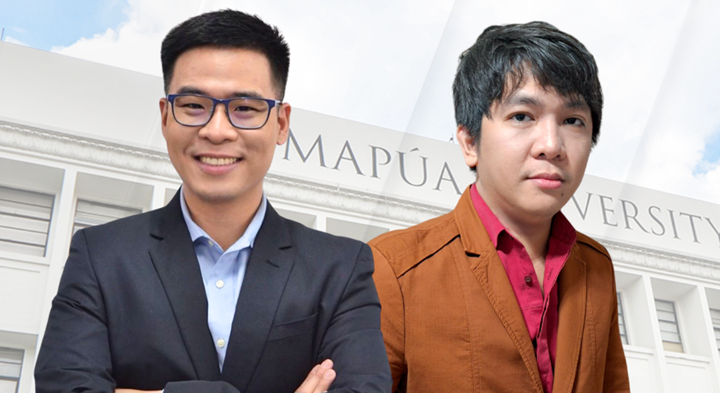
Two Mapúa University faculty members upheld the Mapúan excellence in their recognition by Stanford University and Elsevier as among the World’s Top 2% Scientists for August 2024. The prestigious distinction was bestowed upon Dr. Reggie C. Pantig, a full-time probationary professor from the Department of Physics, and Dr. Ardvin Kester Ong, an associate professor from the School of Industrial Engineering and Engineering Management and program chairman of Engineering Management, for the copious and highly impactful works they have contributed to their respective fields.
Stanford University’s ranking identifies the top two percent of the most-cited scientists worldwide using a combination of metrics such as c-score, h-index, co-authorship, and citation counts, as well as career-long accomplishments and single-year impact. Researchers are assessed and ranked annually to ensure that individuals and their contributions are relevant.
The said recognition demonstrates the University’s commitment to propel research and innovative solutions that will address societal concerns and build the future of industries. It is also a testament to the quality and depth of the research projects developed by the University’s scientific leaders.
“The accomplishments of our faculty, Dr. Reggie Pantig and Dr. Ardvin Kester Ong, underscore the importance of fostering a culture of research and innovation within the academe, which we have always espoused in Mapúa. Scientific papers like those authored by Dr. Pantig and Dr. Ong, as well as the other notable endeavors embarked on by our Mapúan learners, are the precursors to advance the performance of both domestic and global industries,” said Dr. Dodjie S. Maestrecampo, president and chief executive officer of Mapúa.
Dr. Reggie Pantig leads research initiatives in theoretical physics and astrophysics, focusing on black hole physics. Some of his most significant studies involved combining a dark matter model framework called quantum wave dark matter with black hole spacetime theory, which can be used to detect dark matter here on Earth. The thirty-eight-year-old physicist also independently authored a general formula used to examine the shadow of Schwarzschild-like black holes or simple black holes that have mass, no electric charge, and no spin, yet have strong gravitational fields that even light cannot escape.
To date, Dr. Pantig has authored 29 research papers in peer-reviewed international journals. Most of his scientific papers were published in Q1 and Q2 publications or the top 25% to 50% of journals based on impact factor. Each study has contributed to a different facet of black hole physics and theoretical astrophysics.
His co-honoree, Dr. Ardvin Kester Ong, specializes in studying consumer behavior, macroergonomics, and human factors and their applications in management, marketing, and business strategies. His first solo publication, “A Machine Learning Ensemble Approach for Predicting Factors Affecting STEM Students’ Future Intention to Enroll in Chemistry-Related Courses,” gave insights into students’ consumer behavior. His recent research on “Analysis of Investment Behavior among Filipinos:
Integration of Social Exchange Theory (SET) and the Theory of Planned Behavior (TPB),” which he wrote with his Mapúa senior high school advisee and a group under Philippine Science High School’s Research Learning and Immersion Program 2023, led him to develop a new application that can forecast behavioral intention and actual use.
The thirty-two-year-old engineering management expert has authored 150 documents that have been accepted and indexed in the Scopus scientific abstract and citation database from 2019-2024, with an additional 25 that have just been submitted for publication.
While both scientists have been quite busy juggling research projects, academic workload, and other tasks, they take the time to mentor and motivate their students to recognize and seize research opportunities.
Dr. Ong uses his published paper “Consumer Preference Analysis on Attributes of Milk Tea: A Conjoint Analysis Approach” to demonstrate effective research writing methods.
“I usually highlight that research should not always be particularly difficult and is not always focused on the heavy theoretical aspect. You create research based on interest yet has an application in a real-life setting,” said Dr. Ong, while Dr. Pantig explained that a good researcher does not necessarily know all the answers but rather relentlessly asks questions and willingly explores multiple paths to find a solution.
“Students should never lose their sense of curiosity. They should be persistent in their work, but unafraid to ask for help or to collaborate. The research world thrives on fresh perspectives and teamwork. They should read widely, stay updated on current research trends, and develop strong communication skills—both written and verbal,” said Dr. Pantig.

